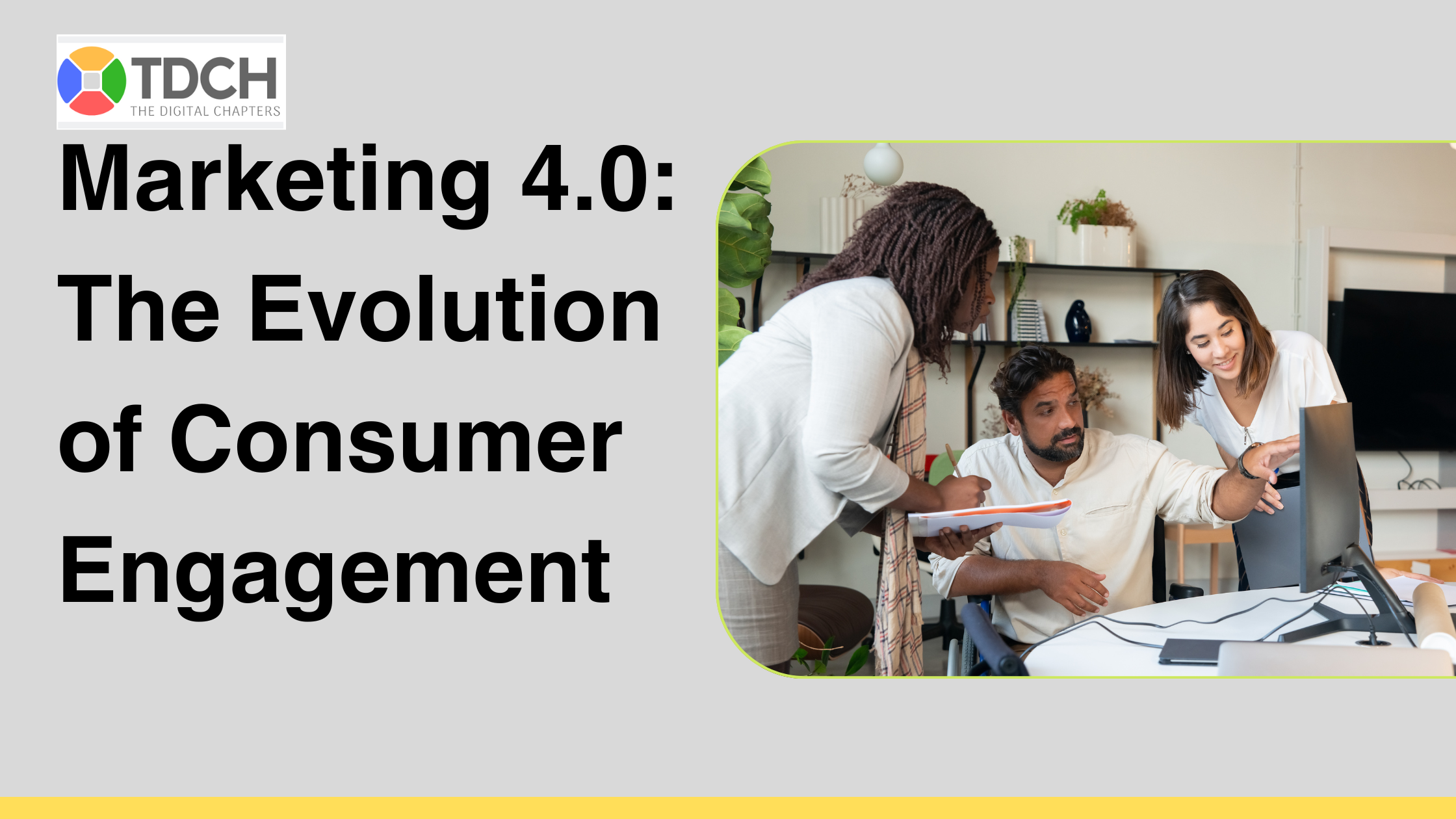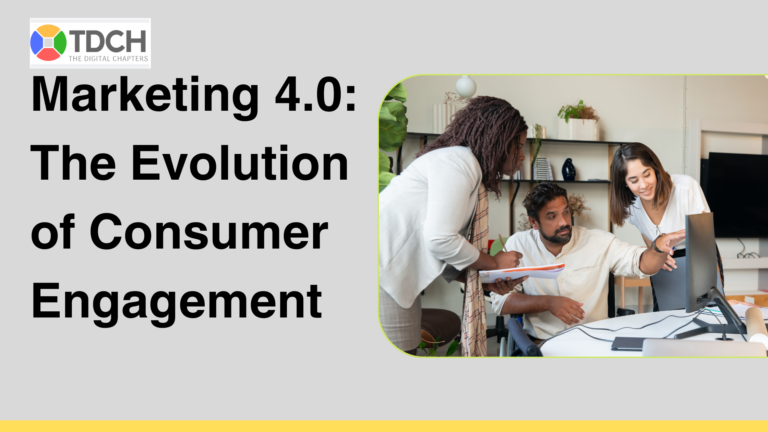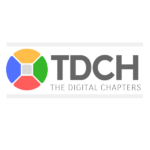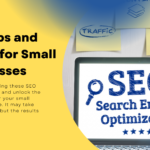Marketing 4.0: The Key to Success in the Digital Age
Introduction to Marketing 4.0

In today’s fast-paced digital world, the traditional methods of marketing are no longer enough to stay competitive. With the advent of Marketing 4.0, businesses need to adapt and embrace the digital revolution in advertising to reach their target audience effectively.
Marketing 4.0 is a holistic approach that combines traditional marketing principles with the power of digital technology.
In this new era of advertising, customer-centric marketing plays a vital role. By leveraging the advancements in technology and data analytics, businesses can gain valuable insights into consumer behavior, preferences, and trends.
This enables them to tailor their marketing strategies and messages to create personalized, engaging experiences for their audience.
Emerging technologies like artificial intelligence, virtual reality, and augmented reality provide unique and immersive experiences that captivate and leave a lasting impact.
In this article, we will explore the key concepts of Marketing 4.0 and delve into how businesses can embrace this digital revolution to stay ahead in the competitive landscape.
Understanding the Digital Revolution in Advertising
The digital revolution has had a profound impact on advertising. In the past, advertising was a one-way street. Brands would create ads and broadcast them to consumers. But with the rise of the internet, consumers have more control over the information they see.
They can choose which websites they visit, which social media platforms they use, and which ads they see.
This has forced brands to rethink their advertising strategies. They need to find ways to reach consumers where they are and in a way that is relevant to them.
This is where digital marketing comes in. Digital marketing uses digital channels, such as websites, social media, and mobile devices, to reach consumers.
There are many different digital marketing channels, each with its own strengths and weaknesses. For example, search engine marketing (SEM) is a great way to reach consumers who are actively looking for products or services.
Social media marketing is a great way to build relationships with consumers and engage them in conversation. And mobile marketing is a great way to reach consumers on the go.
The digital revolution has created new opportunities for brands to reach consumers. But it has also created new challenges.
Brands need to be careful not to bombard consumers with irrelevant ads. They also need to be transparent about their advertising practices.
If brands can master the digital revolution, they will be well-positioned for success in the future.
The digital revolution in advertising is still in its early stages. But it is clear that this revolution is transforming the way we advertise. Businesses that embrace Marketing 4.0 will be well-positioned for success in the digital age.
Key Concepts of Marketing 4.0
The key concepts of Marketing 4.0 are:
- The customer is at the center of everything. Marketing 4.0 is about understanding the customer’s needs and wants, and then creating marketing messages that resonate with them.
- Data is king. Marketing 4.0 uses data to understand customers and their behavior. This data can be used to create personalized marketing messages and to measure the effectiveness of marketing campaigns.
- Social media is essential. Social media is a powerful tool for connecting with customers and building relationships with them. Marketing 4.0 uses social media to engage with customers, answer their questions, and get feedback.
- Mobile marketing is key. More and more people are using mobile devices to access the internet. Marketing 4.0 uses mobile marketing to reach customers on their smartphones and tablets.
- Personalization is paramount. Marketing 4.0 is about creating personalized experiences for customers. This means using data and technology to understand each customer’s individual needs and preferences and then tailoring marketing messages accordingly.
- Emotions matter. Marketing 4.0 recognizes that emotions play a powerful role in driving consumer behavior. Therefore, it uses storytelling and other techniques to connect with customers on an emotional level.
- Sustainability is essential. Marketing 4.0 is about building brands that are sustainable in the long term. This means considering the environmental and social impact of marketing campaigns and using marketing to promote positive social change.
Marketing 4.0 is built on three core concepts: hyper-connectivity, customer engagement, and data-driven insights.
- Hyper-connectivity refers to the interconnectedness of consumers and businesses through various digital channels. It allows businesses to reach their target audience anytime, anywhere, and on any device.
- Customer engagement is about building meaningful relationships with customers by providing personalized experiences and valuable content.
- Data-driven insights enable businesses to make informed decisions based on real-time data, helping them optimize their marketing efforts and drive better results.
These three concepts are essential for businesses that want to succeed in the digital age.
By understanding and applying these concepts, businesses can create marketing campaigns that are more effective, more efficient, and more sustainable.
The Importance of Customer-Centric Marketing in Marketing 4.0
In Marketing 4.0, the customer takes center stage. Traditional marketing was focused on pushing products and services to a mass audience, but Marketing 4.0 emphasizes understanding and meeting the individual needs and desires of customers.
By adopting a customer-centric approach, businesses can build trust, foster loyalty, and create long-term relationships with their customers.
This involves listening to customer feedback, personalizing marketing messages, and providing exceptional customer experiences at every touchpoint.
Customer-centric marketing is about putting the customer at the center of everything you do. It means understanding their needs and wants and then creating marketing messages that resonate with them.
It also means building relationships with customers and providing them with a personalized experience.
There are many benefits to customer-centric marketing. For example, it can help you to:
- Increase customer engagement: When customers feel like you understand them and that you are providing them with value, they are more likely to engage with your brand. This can lead to increased sales, repeat business, and positive word-of-mouth.
- Improve customer satisfaction: When customers are satisfied with their experience with your brand, they are more likely to stay loyal to you. This can lead to long-term growth and profitability.
- Drive better results: Customer-centric marketing can help you to optimize your marketing efforts and drive better results. By understanding your customers and their needs, you can create more effective marketing messages and campaigns.
If you want to succeed in the digital age, you need to focus on customer-centric marketing. By putting the customer at the center of everything you do, you can create marketing campaigns that are more effective, more efficient, and more sustainable.
Here are some tips for creating customer-centric marketing campaigns:
- Understand your customers: The first step to customer-centric marketing is understanding your customers. What are their needs and wants? What are their pain points? What motivates them?
- Create personalized experiences: Once you understand your customers, you can start to create personalized experiences for them. This means using data and technology to deliver relevant content and offers to each individual customer.
- Build relationships: Customer-centric marketing is not just about making a sale. It’s also about building relationships with customers. This means providing them with excellent customer service and engaging with them on social media.
- Measure your results: It’s important to measure the results of your customer-centric marketing campaigns so that you can see what’s working and what’s not. This will help you to optimize your campaigns and get better results over time.
By following these tips, you can create customer-centric marketing campaigns that will help you to succeed in the digital age.
How to Leverage Digital Technologies in Marketing 4.0
To effectively leverage digital technologies in Marketing 4.0, businesses need to embrace a multi-channel approach.
This means utilizing various digital platforms such as social media, email marketing, content marketing, and search engine optimization to reach and engage with their target audience.
In Marketing 4.0, businesses need to leverage digital technologies to reach their target audience and build relationships with customers.
Here are some ways to leverage digital technologies in Marketing 4.0:
- Use social media: Social media is a powerful tool for connecting with customers and building relationships. Use social media to share content, answer questions, and get feedback from customers.
- Create personalized marketing messages: Use data and technology to create personalized marketing messages that resonate with each individual customer. This will help you to connect with customers on a more personal level.
- Use mobile marketing: More and more people are using mobile devices to access the internet. Use mobile marketing to reach customers on their smartphones and tablets.
- Use data-driven insights: Use data and analytics to track the performance of your marketing campaigns and make informed decisions about your marketing strategy.
- Use automation: Automation can help you to save time and money on your marketing efforts. Use automation to automate tasks such as email marketing, social media marketing, and lead generation.
By leveraging these technologies, businesses can create a seamless customer experience across different touchpoints, build brand awareness, and drive conversions.
Strategies for Staying Ahead in the Digital Revolution
To stay ahead in the digital revolution of advertising, businesses need to constantly adapt and innovate. Here are some strategies to consider:
- Embrace data-driven decision-making: By analyzing data and gaining insights into customer behavior, businesses can make informed decisions and optimize their marketing efforts.
- Foster innovation: Stay up-to-date with the latest digital trends and technologies to continuously innovate and find new ways to reach and engage with your target audience.
- Focus on personalized experiences: Tailor your marketing messages and experiences to individual customers, providing them with relevant and timely content that resonates with their needs and desires.
- Build strong relationships: Invest in building meaningful relationships with your customers by providing exceptional customer service and personalized interactions.
Case Studies of Successful Marketing 4.0 Campaigns
To illustrate the effectiveness of Marketing 4.0, let’s take a look at some successful campaigns:
There are many successful Marketing 4.0 campaigns that businesses can learn from. Here are a few examples:
- Nike’s “Dream Crazy” campaign: This campaign was launched in 2018 and featured Colin Kaepernick, the former NFL quarterback who famously kneeled during the national anthem to protest racial injustice. The campaign was a huge success, generating over 1 billion views on social media.
- Volkswagen’s “The People’s Car” campaign: This campaign was launched in 2019 and celebrated the 70th anniversary of the Volkswagen Beetle. The campaign used a combination of digital and traditional marketing channels to reach a global audience.
- Google’s “Year in Search” campaign: This campaign is launched every year and features the most popular search terms from the previous year. The campaign is a great way to connect with customers and show them how Google is relevant to their lives.
- Netflix’s “Stranger Things” campaign: This campaign was launched in 2016 to promote the second season of the popular Netflix show “Stranger Things.” The campaign used a combination of digital and traditional marketing channels to create a buzz around the show.
Tools and Resources for Mastering Marketing 4.0
To master Marketing 4.0, businesses can leverage various tools and resources:
- Customer relationship management (CRM) software: This software helps businesses manage and analyze customer data, enabling them to deliver personalized experiences and targeted marketing campaigns.
- Social media management tools: These tools assist businesses in managing their social media presence, scheduling posts, and analyzing engagement metrics.
- Email marketing platforms: These platforms enable businesses to create and send targeted email campaigns, track open rates, and measure conversions.
The Future of Advertising in Marketing 4.0
As technology continues to evolve, the future of advertising in Marketing 4.0 looks promising. Artificial intelligence, virtual reality, and augmented reality are expected to play a significant role in delivering personalized and immersive experiences to consumers.
Conclusion
Mastering Marketing 4.0 is essential for businesses to stay ahead in the digital revolution of advertising. By understanding the key concepts, embracing customer-centric marketing, leveraging digital technologies, and adopting innovative strategies, businesses can effectively reach and engage with their target audience.
The future of advertising is exciting, and by staying informed and adapting to new technologies, businesses can thrive in the ever-changing digital landscape.
Start implementing the strategies and tools discussed in this article to drive your marketing efforts forward and stay ahead in the digital revolution of advertising.



